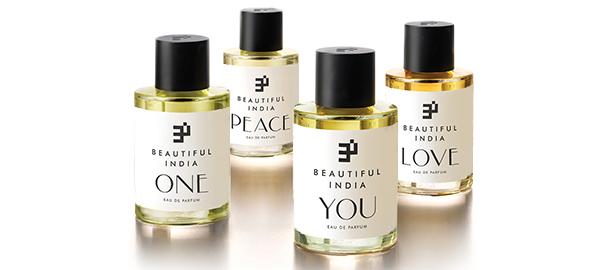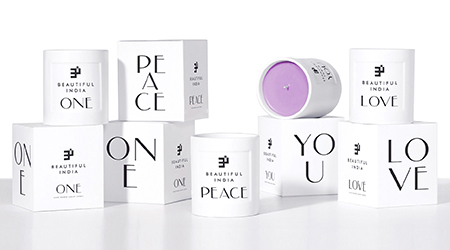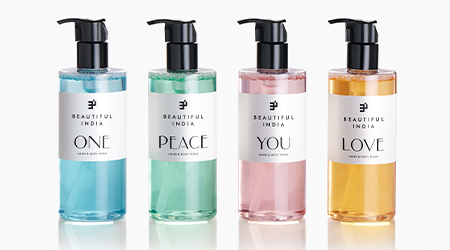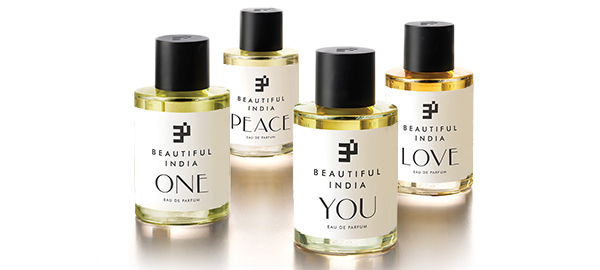By clicking subscribe, you are accepting our Terms and Conditions and Privacy Policy. You can unsubscribe any time by using the link in our emails.
Take a walk down Sensory Lane and discover forgotten memories.

Take a walk down Sensory Lane and discover forgotten memories.
The strong aroma of coffee being brewed can transport you in a nanosecond from the Italian coffee bar you’re standing in, to your grandmother’s courtyard in Tanjore. The traditional hypothesis about the sense of smell in humans being poor compared to animals, is challenged on an ongoing basis by scientists who study the mysterious workings of the brain.
In his exceptionally prolific masterpiece ‘Remembrance of Things Past’, twentieth-century French writer and philosopher Marcel Proust journeyed back into his childhood, nudged by the overwhelmingly nostalgic smell of freshly baked madeleines. Since then, a huge amount of scientific evidence has emerged implying that memories are potent olfactory associations filed away by the brain, more significant than those made by visual or sound stimuli.
Neuroimaging techniques have proved that our olfactory systems are far more strongly connected to the hippocampus responsible for encoding memories in the brain, than our sensory systems, i.e., vision, touch and sound. Unlike sound, touch or taste, smell literally bypasses the brain’s information switchboard, the thalamus, and goes straight to the memory centre, the hippocampus. This explains why smells can trigger way more vivid and deeper memories than sight or sound. Memories are subconsciously filed away in our brains into a scent library catalogued by the smells that we associate with them. In fact, smell even helps micro-contextualize our visual, aural, or tactile memories, which are all then easily recallable, voluntarily or involuntarily, by inducing the associated smell.
Our scent memory is extremely powerful. It can transport us to distant places, connect us to people from our past or present, and help us relive events that occurred at any point in our timelines. In a way, our scent memory can help us travel in time. Crying infants calm down when they smell an item of clothing worn by their mother, a trick often used by babysitters. As we grow, our conditioning blunts our more primal faculties. But even so, think about what happens when you encounter the perfume worn by a former lover, a smell that brings to mind your lunch box in school, the warm reassurance of your mother’s embrace, the musty powdery smell of your grandmother’s wardrobe, the sterile wafts of a hospital ER, trails of freshly baked bread wafting out of that boulangerie you loved once, the soothing lemongrass notes of your favourite spa……. Like Proust, every one of these and a myriad other olfactory triggers can take us on our own incredibly rich, autobiographical journeys.
Journeys like these are useful to recalibrate our emotional barometer. They can uplift us when we are feeling down. They can anchor us when we are feeling untethered, make us feel connected when we are lonely, infuse us with confidence when we are feeling unsure of ourselves, propel us towards a goal when we are demotivated and so on. The powerful role that smell plays in our lives cannot be underestimated.
Covid 19 was a stark reminder of this fact. Patients who lost their sense of smell reported an acute sense of disorientation and overall emotional unease. It also appeared to impact their memory, negatively, proving the mysteriously vital relationship between smell and the cognitive process that encodes, stores and retrieves memories. Our physical and emotional well-being can be impacted by scent-linked memories, both positively and negatively. A diminished sense of smell is often related to any of several health conditions linked to memory loss.
We can use this knowledge to our benefit. For example, since we know that memory is enhanced by smell association, we can choose to wear a certain perfume when we are studying or preparing for a presentation. And then wear it for the actual exam or presentation. By building an association in our minds with a certain smell, we can actually improve our lives and that of others. Positive memories reduce cortisol, the stress hormone in our bodies, and can actually cause a spike in the feel-good hormone, enabling a change of mood or even a change in unwanted behaviours like smoking.
The instant impact of a particular scent or fragrance on our mood and behaviour, is undeniable. This means, we can not only be led down a very sensorial memory lane by what our noses pick up, but we can also curate the fragrance stimuli around us, to steer our moods and behaviours in a particular direction.

 France (en)
France (en)
 Germany
Germany
 Japan
Japan
 Singapore
Singapore
 United Arab Emirates
United Arab Emirates
 United Kingdom
United Kingdom
 United States
United States












